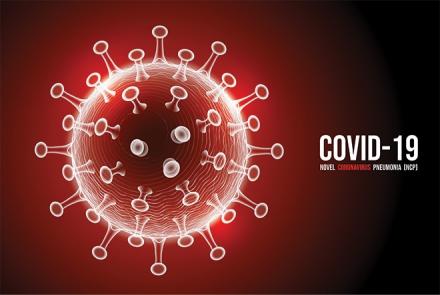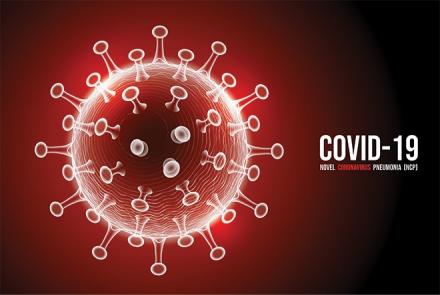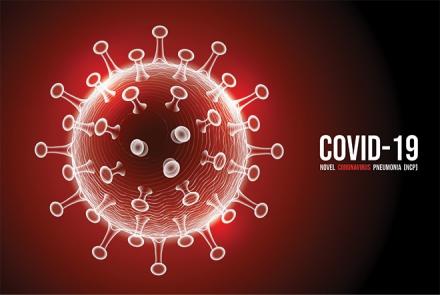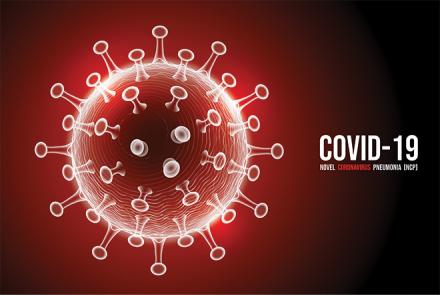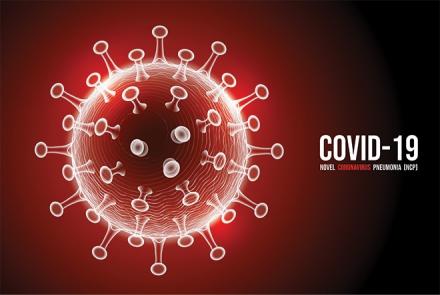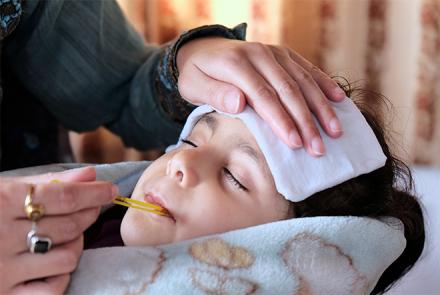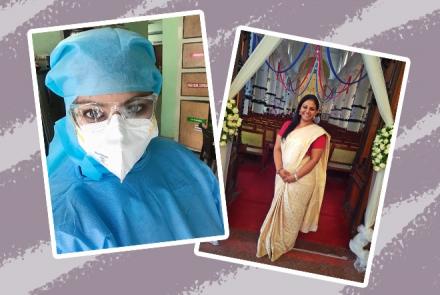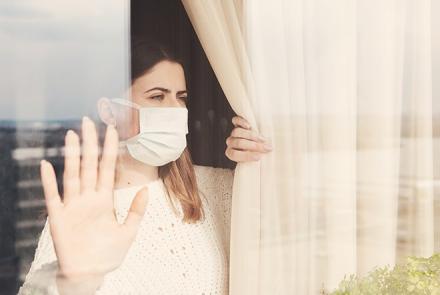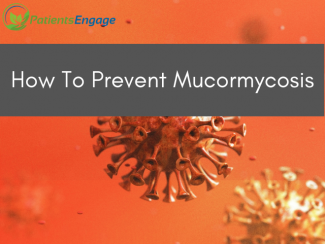
Dr. Tarjani Dave, Consultant Ophthalmologist at LV Prasad Eye Institute explains what is Mucormycosis or Black Fungus, the symptoms associated with it, why there was a spike in the second wave of Covid cases in India and how to prevent another spike in the future.
Why is Mucormycosis called the “black fungus”?
Mucormycosis is caused by a fungus called Mucor that is found all around us - in the oral and respiratory lining of all healthy individuals, soil, water and air. It commonly affects the sinuses, eyes and brain. Once this fungus produces an infection, there is necrosis of tissue that sets in. This necrosis looks like a black plaque. Hence it is known as black fungus. So in essence black fungus is a misnomer.
When is mucormycosis most likely to occur during the course of covid infection?
Mucormycosis can occur either concurrent to the COVID-19 infection or in the early post-recovery phase.
Who is at most risk of acquiring it?
Patients who have the following are most at risk:
- Uncontrolled diabetes
- Ongoing chemotherapy for Cancer
- On long-term steroid therapy
- Undergone organ transplant recently
- Extensive burns and injuries
What are the common symptoms?
- Any kind of facial pain
- Pain over the sinuses (cheekbones)
- Stuffy nose
- Blood-stained or black nasal discharge
- Drooping of the upper eyelid
- Unusual bulging of the eyes
- Restricted movement of the eyeball
- Sudden redness and extreme swelling over the eyeball
- Sudden decrease in vision
- Black lesions on the palate or dental pain
What environmental conditions act as risk factors for mucor?
Risk factors responsible for mucormycosis include exposure to soil, with decaying organic matter, such as leaves, compost piles and animal dung. Mucorales, are more common in soil than in air, and in summer and fall than in winter or spring.
Why did we not see mucormycosis during the 1st wave of the pandemic?
We did see. Just that the numbers were lower when compared to the second wave. Second wave had higher number of people getting Covid-19 and also the viral strain was different which could account for larger number of post-Covid mucormycosis.
Why the spike in the 2nd wave? What changed?
The COVID-19 virus causes a reduction in the lymphocyte (white blood cell) levels in the body. WBCs are the body’s first line of defence against infections. With this reduction in the immunity, the Mucor fungus is able to attack the body and spread in the body tissues. The current COVID management protocols require judicious but high dose steroid usage in those patients whose lungs have got affected. While helping to bring the COVID-related damage under control, the counter-effect of such high dose steroids is suppression of the body’s immune mechanisms, which in turn makes our body more vulnerable to this fungus. Sometimes drugs called immunomodulators are used to treat severe cases of COVID-19 which can also cause immunosuppression. Patients who are kept on long-term oxygen inhalation may see a drop in oxygen mask hygiene.
Since the second wave was more wide-spread and severe, many patients were put on steroids and oxygen, which lead to more incidence rates of black fungus infections.
Who should a person experiencing symptoms reach out to?
Mucormycosis is a very invasive infection with significant morbidity and mortality. If the patient experiences any such symptoms, they should immediately consult a specialized eye surgeon or doctor. Patients can also avail teleconsultation if they are in isolation or under hospital admission.
What is the treatment?
The treatment needs expensive investigations to make treatment decisions and also needs a multidisciplinary team of doctors. Your EYE and ENT surgeon will examine you and ask for blood sugar levels, nasal swabs and MRI scans if you are suspected to have the black fungus infection. Based on the test reports, they will let you know what treatment may be required.
Early and localized infections can be treated with intravenous and local anti-fungal injections followed by a long course of oral anti-fungal medications.
Extensively spread infections require aggressive sinus surgery to clear the internal contents of the cheekbones and injections behind the eye.
In a lot of these cases unfortunately, the entire eyeball may need to be removed in order to contain the infection and avoid fatality. This is a decision that your doctor will take once an entire eye and sinus examination and MRI scan have been done.
Advice for people who are going through mucor or have gone through it?
Don’t Panic - Be Aware, Be Vigilant
- Patients should consult their treating physician to ensure good control of blood sugar both during and after recovery from COVID-19
- Steroids should be used very judiciously, i.e. only when the saturation on room air falls below 94 – under expert care
- Hygiene of the oxygen masks and humidifiers should be maintained with utmost care
- Eat healthy, stay stress-free and follow the COVID precaution protocols
How can we be better prepared to prevent mucor in the third wave?
Patients with prediabetes and diabetes should consult their treating physician to ensure good control of blood sugar.
If you get infected with Covid, keep close eye on your blood sugar levels both during and after recovery from COVID-19. Before your physician puts you on any treatment plan, make sure you list out to them the physical ailments that you have such as diabetes, high blood pressure, etc.
Steroids should be used very judiciously during active COVID-19 infection, i.e. only when the saturation on room air falls below 94, and that too under the care of an expert who can monitor for blood sugar rise and treat promptly. Those under home isolation may not need any steroid treatment.
Hygiene of the oxygen masks and humidifiers should be maintained with utmost care.
Eat healthy, stay stress-free and follow the COVID precaution protocols.
|
STEROIDS AND COVID While steroids are lifesaving in moderate to severe cases of COVID-19, indiscriminate use may lead to secondary infections that can be life-threatening! Nearly all patients developing Mucormycosis following COVID-19 infection seem to have raised blood sugar values. This could be partly attributed to steroids used in the management of COVID-19. Steroids are indicated in Moderate to severe COVID-19 disease for patients that are admitted for
Let your doctor make the decision for you and avoid over the counter steroids without a consult with your physician. |
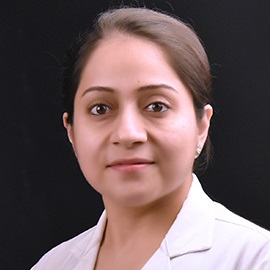
Dr. Tarjani Dave, Associate Director, Kallam Anji Reddy Campus
Consultant Ophthalmologist - Ophthalmic Plastic Surgery Service
Specialisation: Ophthalmic Plastic Surgery & Facial Aesthetics, Ophthalmic Ocular Prosthesis
An accomplished academician, Dr Dave has authored more than 60 peer-reviewed publications and book chapters. She is a passionate teacher and lectures widely at the regional, national and international levels on a range of topics related to orbital, facial and socket surgery. Her research interest mirrors her clinical focus and relates to orbital diseases, particularly- thyroid eye disease, orbital vascular malformations and management of orbital fractures and anophthalmia.

